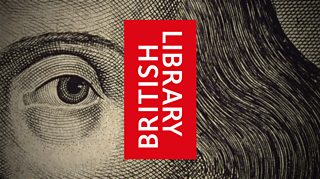Fledgeling Ipswich Theatre shows a passion for Shakespeare
The opening of a theatre royal in a town was a big event – it gave the performances legitimacy and Shakespeare was often the go-to playwright of choice because he was seen to epitomise English theatre culture.
Here the company from the nearby Theatre Royal Norwich are coming to Ipswich with their performance, this would have been a big event for local society.
-
![]()
Much ado near me
Hear more Shakespeare stories on BBC Radio Suffolk
-
![]()
Shakespeare Festival 2016
The BBC celebrates the genius of the bard

This playbill, from the British Library archives, shows the lead actress Mrs Stretton elsewhere on the theatre circuit – she obviously toured with the Theatre Royal Norwich company and her name crops up in the provinces although it is not certain she ever made it to London.
Shakespeare was often the go-to playwright of choice because he was seen to epitomise English theatre culture.
It is an example of how a small venue back in the late 18th century was trying to get on its feet in Ipswich – part of the quest perhaps locally to establish a more permanent theatre, as seen in Norwich.
Theatre Regulation in the 18th and 19th century.
Hannah Manktelow, University of Nottingham doctoral student, working with the British Library, writes:

Theatre productions in the 18th and 19th centuries were highly regulated by government.
Theatre productions in the 18th and 19th centuries were highly regulated by government.
The regulation began in 1737 with the Licensing Act was brought in by the then Prime Minister Robert Walpole, because his government had been subject to numerous satires on the London stage.
As a result the only way a venue could officially stage a play was if it had a patent. Given that only two patents had been issued – to Covent Garden and Drury Lane theatres in London – technically any productions outside these venues were illegal.
However, the groups of players who travelled the country to perform in the provinces often avoid prosecution by local magistrates who were often fans of the theatre themselves.
Then in the later 18th century, provincial theatres were also starting to be awarded ‘patents’ themselves, allowing them to take the name of Theatres Royal. (Nearby Norwich was among the first to gain its Theatre Royal status in 1768)
And in 1788, restrictions were relaxed even more. So, just two years after this performance at Tacket street Theatre smaller towns such which were not likely to gain a Theatre Royal, were able to acquire an official licence from magistrates.
Such a licence could be issued for up to sixty days at a time, provided the location was not within twenty miles of London, eight miles of a patent or licensed theatre, fourteen miles from Oxford and Cambridge or ten miles from a Royal residence.
About Shakespeare on Tour
From the moment they were written through to the present day, Shakespeare’s plays have continued to enthral and inspire audiences. They’ve been performed in venues big and small – including inns, private houses and emerging provincial theatres.

BBC English Regions is building a digital picture which tracks some of the many iconic moments across the country as we follow the ‘explosion’ in the performance of The Bard’s plays, from his own lifetime to recent times.
Drawing on fascinating new research from Records of Early English Drama (REED), plus the British Library's extensive collection of playbills, as well as expertise from De Montfort University and the Arts and Humanities Research Council, Shakespeare on Tour is a unique timeline of iconic moments of those performances, starting with his own troupe of actors, to highlights from more recent times. Listen out for stories on Shakespeare’s legacy on your BBC Local Radio station from Monday 21 March, 2016.
You never know - you might find evidence of Shakespeare’s footsteps close to home…
Craig Henderson, BBC English Regions
Related Links
Shakespeare on Tour: Around Suffolk
-
![]()
Ipswich: a magnet for Shakespeare's players
Why East Anglia became the favored playing circuit among major troupes
-
![]()
Aldeburgh’s Moot Hall – where Shakespeare's troupe performed
Venue still standing in Suffolk
-
![]()
Dunwich - a destination point for Shakespeare's players
What drew Shakespeare and his players to Dunwich?
-
![]()
Shakespeare's Men perform in Sudbury
Before the Puritans seem to take hold
Shakespeare on Tour: Around the country
-
![]()
The 1809 ticket price riots
The most famous riots in the history of theatre
-
![]()
Cambridge students put on a Christmas satire
Shakespearean style 'Footlights'
-
![]()
North West's influence on Shakespeare's success
Plus, the small Cheshire town that attracted Shakespeare's players
-
![]()
Salisbury shadows play Shakespeare
A dreamy performance of Shakespeare










